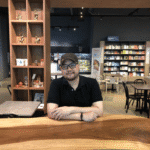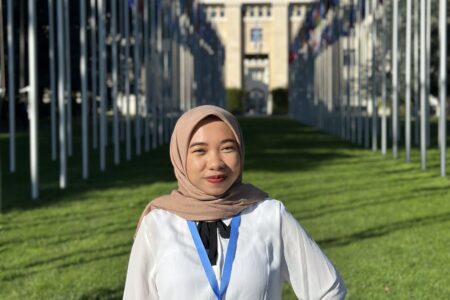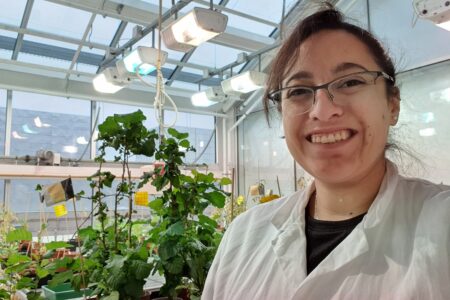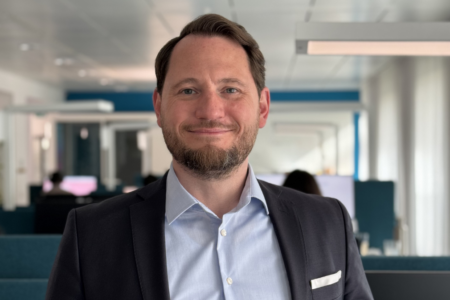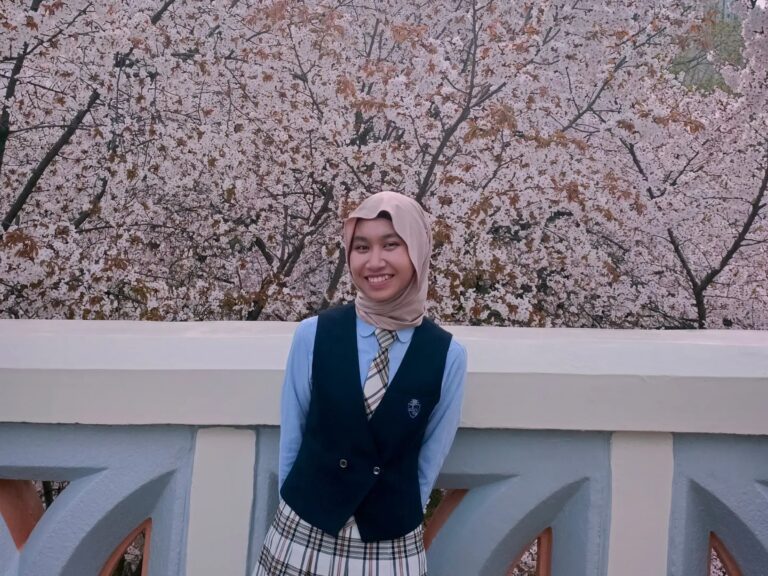
“Parasite” and “Squid Game.” “Gangnam Style” and “Sorry Sorry.” BTS and Blackpink.
Even if you’re living under a rock, you’re bound to have heard of something brought to life by the Korean Wave, also known as Hallyu.
This cultural phenomenon has cemented its place worldwide. In 2023, the number of Hallyu fans worldwide surpassed 200 million for the first time, as reported by the Korea Foundation and Korea’s Ministry of Foreign Affairs.
Rohadatul ‘Aisy Hamdaini was swept by this wave, transporting her from Indonesia all the way to South Korea.

Hamdaini (left) helping with the promotion of a traditional dance club at the Universitas Gadjah Mada. Source: Rohadatul ‘Aisy Hamdaini
Always interested in learning a new language, Hamdaini was enraptured by the Korean language and culture around 2015 — so much so that she started teaching herself Hangul, the Korean alphabet, by watching YouTube.
That was in the second year of junior high school, when she getting even more into K-dramas, K-pop, and K-variety shows.
And it was during this time that she had to decide where and what to study at university.
“I didn’t know what I wanted to study, but then I remembered that I always wanted to go to Korea and learn more about Korean culture,” she says.
As luck would have it, Universitas Gadjah Mada was offering a bachelor’s in Korean language and culture, and Hamdaini didn’t need more convincing.
Though … there was one question niggling at her: why not pursue this programme in South Korea, the heart of this programme’s content, instead of Indonesia?
Hamdaini’s reason was sound: as she was already accepted into an Indonesian university, it was impossible for her to apply for the Global Korea Scholarship (GKS) unless she forfeited her acceptance. Plus, the GKS was a competitive scholarship, and she wasn’t confident using her science-major high school results to apply for a language programme.
So, remaining in Indonesia it was then. But that didn’t dissuade Hamdaini from giving the programme her all.

Anyone can try their hand at the TOPIK test, but Hamdaini has some handy tips that could help your learning progress go smoother. Source: Rohadatul ‘Aisy Hamdaini
How to pass the Korean TOPIK test
A little over a year into her studies, Hamdaini achieved her Test of Proficiency in Korean (TOPIK) Level 6 certification, the most advanced level one can achieve, with just four months of studying.
The TOPIK test measures the Korean language proficiency of non-native speakers. It has two levels —TOPIK I and TOPIK II.
TOPIK I contains sub-levels 1 and 2, and only has reading and listening segments. TOPIK II has sub-levels 3 to 6, and involves reading, listening, and writing. Of course, each level progresses in difficulty.
Obtaining level 1 means that the individual is able to carry out basic conversations related to daily survival skills, understand the contents related to personal and familiar subjects, and understand basic grammar.
Level 6, on the other hand, means that the individual is able to perform linguistic functions necessary for research and tasks in professional fields relatively correctly and fluently.
They are able to understand and use expressions related to even unfamiliar subjects of politics, economics, society, and culture. They experience no difficulty performing functions or conveying meaning, although the proficiency level is not quite the same level as that of a university-educated native speaker.
Completing any level of the TOPIK test can give anyone that slight advantage, especially when you’re job hunting in the Korean market.
But Hamdaini pursued level 6 simply because she “wanted to test where my Korean language skills were at.”
Of course, due preparations were made.
A key factor that helped with revising the past year’s exam papers. For Hamdaini, a significant part of her preparation was finding a paper online, setting up a timer, and working on the test.
But Hamdaini’s real tip for improving general learning is to consume more Korean media. More specifically, you should invest some of your screen time in Korean variety shows like “Running Man” and the like.
“I think variety shows are better than dramas because they use more casual language,” Hamdaini explains. “It will be a lot easier to pick up your listening skills, vocabulary, and understanding with that.”
And if learning the language is still proving too tricky, a trip to the language’s country of origin might take you from LinkedIn’s “Professional Working Proficiency” to “Full Professional Proficiency” in just one semester.

Hamdaini is pictured in a hanbok, a traditional Korean outfit, at Gyeongbok Palace in Seoul during her exchange semester. Source: Rohadatul ‘Aisy Hamdaini
Why language learners should consider studying abroad, even if it’s just for one semester
In the spring of 2024, Hamdaini participated in an exchange programme at Soongsil University for a full semester.
Being physically in South Korea and learning about the Korean language and culture at the heart of Seoul was game-changing, to say the least.
Any foreign language learner can agree that speaking in another language takes a certain dose of confidence.
Being thrust into an environment where you’re forced to use every ounce of knowledge you have to get by will surely whip your vocabulary and grammar into shape – it’s a tried and tested method, after all.
And despite already having a TOPIK 6 certification, Hamdaini claims that her command of the language was 60% before her time in Korea. By the end of it, she believes the number went up to 80%.
“There are a lot of advantages because you have to speak Korean on a daily basis,” she says. “Even if you look like a foreigner, the locals will still speak to you in Korean — they don’t speak English.”

Hamdaini (second from left) pictured with the friends she made during her exchange semester in South Korea. Source: Rohadatul ‘Aisy Hamdaini
But it’s not just about being better at the language — it’s also about understanding the nuances and expressions behind it, which is much more difficult to explore in her home country of Indonesia.
“Korean is a very expressive language, and a singular word with one meaning can be used in different scenarios,” says Hamdaini.
With that said, she hopes to make more frequent trips back to Korea, though this time, with the full intent of exploring more than just its glittering capital city.
Whether her travels take her to the port city of Busan or the country’s largest island, Jeju, Hamdaini is sure that every experience will be something that she keenly looks forward to.






